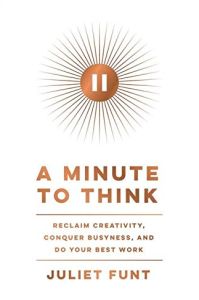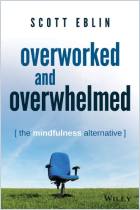Зарегистрируйтесь на getAbstract, чтобы получить доступ к этому краткому изложению.

Зарегистрируйтесь на getAbstract, чтобы получить доступ к этому краткому изложению.
Juliet Funt
A Minute to Think
Reclaim Creativity, Conquer Busyness, and Do Your Best Work
HarperBusiness, 2021
Что внутри?
Learn how doing less – but thinking, reflecting, questioning and resting more – can boost performance.
Recommendation
Fortune 500 consultant Juliet Funt offers a fresh perspective on productivity. Funt makes the case that superior results – and better mental health – come from taking time to reflect and recuperate. She draws on psychology research and cites the experiences of professionals and teams in a variety of industries. Funt also offers sensible, actionable tools for incorporating “white space” in your day. Anyone who suffers from overwhelm – and is open to the notion that being busy and being productive aren’t necessarily the same thing – can benefit from her insights.
Summary
About the Author
Juliet Funt is the CEO of the training and consulting firm The Juliet Funt Group.




















Comment on this summary